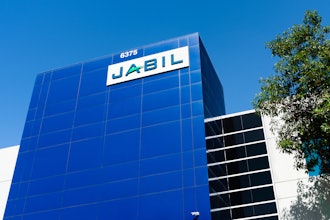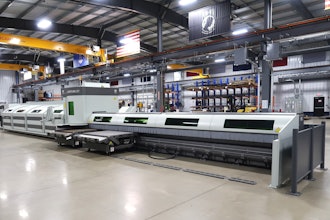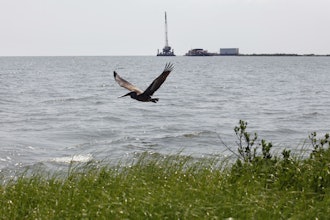TARRYTOWN, N.Y. (AP) — A federal hearing that could decide the future of an Entergy Corp. nuclear plant in the New York City suburbs began on a less-than-dramatic note.
The hearing was dominated by a highly technical discussion about how to predict where corrosion might occur in the miles of piping at the Indian Point nuclear plant.
With references to "void fraction," ''enthalpy" and "wall thinning," experts quickly bored the 100 or so people who had come to show support for or opposition to new licenses for the plant.
Public comment was not permitted.
Plant owner Entergy Nuclear wants to run the two reactors at Indian Point for 20 years past their upcoming expiration dates. About 17 million people live within 50 miles of the plant, and blocking the licenses has long been the focus of environmentalists and politicians who have campaigned against it.
Anxiety climbed after the 9/11 attacks, when one of the hijacked planes flew over Indian Point on its way to the World Trade Center, and again after the 2011 quake-and-tsunami nuclear disaster in Japan.
Opponents including Gov. Andrew Cuomo have argued that the threat of terrorism or accident is too great at a nuclear plant so close to the nation's largest city.
"My point has always been safety first, and the reward doesn't justify the risk," Cuomo said last year.
The Nuclear Regulatory Commission has found repeatedly that Indian Point operates safely.
The administrative judge running Monday's hearing, Lawrence McDade of the Atomic Safety and Licensing Board, warned the crowd in advance that he and two other judges had already waded through thousands of pages of evidence and 1,400 exhibits.
He said attending Monday's session would be "like coming into 'Lost' at Season 3."
The session began with a dispute over the effectiveness of a computer program used by Entergy that is designed to forecast where pipe corrosion might occur. Rival experts disagreed about its accuracy.
The argument pertained to the first issue before the judges: whether corrosion in pipes and elsewhere can be safely managed for 20 more years.
The eight other issues to be argued into December include decontamination after an accident, the cost of human exposure to radiation and the effect of Indian Point on property values. The durability of inaccessible cables and electrical transformers is also on the agenda.
One issue — involving leaks of radioactive water from spent fuel pools — was tentatively settled just before the hearings. Two environmental groups and Entergy announced that Entergy will establish a third sampling station in the Hudson River and post sampling data on a public website.
Not on the agenda are plant security and the difficulty of evacuating such a densely populated area — "the issues people really care about," says Phillip Musegaas, a program director at the environmental group Riverkeeper.
The NRC says those topics are continually studied and are not germane to relicensing.
Nevertheless, the challengers have high hopes, although the NRC has never refused a plant's renewal license.
"I think this really spells the end of Indian Point," said Robert F. Kennedy, chief prosecuting attorney for Riverkeeper, one of the groups challenging the licenses. "The noose is closing."
Entergy is confident the licenses will be approved.
"We feel we have a sound technical basis on each issue," spokesman Jerry Nappi said.
Besides Indian Point, eight other plants with 11 reactors are currently seeking renewals. They include the Davis-Besse plant near Toledo, Ohio, which was shut down for two years because of what the NRC called the most extensive corrosion ever found at a U.S. nuclear reactor.
Last year, the NRC approved a new license for the Vermont Yankee plant in Vernon, also owned by Entergy. The state tried to shut it down, but a federal judge ruled for the company. Vermont is appealing.
The two reactors at issue in New York — Indian Point 2 and Indian Point 3 (Indian Point 1 was mothballed in the 1970s) — have 30-year licenses that expire in 2013 and 2015. But both sides agree that the first date, and possibly the second, will come and go before the new licenses are settled.
That's because these hearings will stretch into next year, judges usually take months to rule, appeals are inevitable and the NRC declared in June that it will make no final decisions on licenses until after a two-year study of its nuclear waste rules.
No matter how long it takes, under NRC regulations, Indian Point can keep running until there's a final decision, expired licenses or not.
The plant's opponents may have an ace in the hole unrelated to the federal hearings. The state has denied Indian Point a water quality permit, saying that by drawing in Hudson River water for cooling, it kills billions of fish and eggs.
The NRC has said it cannot issue a new license unless Indian Point has the water permit. Entergy says the alternative, building cooling towers, would cost it $1.5 billion. It is appealing the state decision.
The potential closing of Indian Point, which provides about a quarter of the power used in New York City and Westchester County, has fostered a succession of studies on how its 2,000 megawatts would be replaced.
The industry warns of brownouts, pollution, job cuts and higher electric bills. Environmentalists see an opportunity for turning to renewable sources.






















